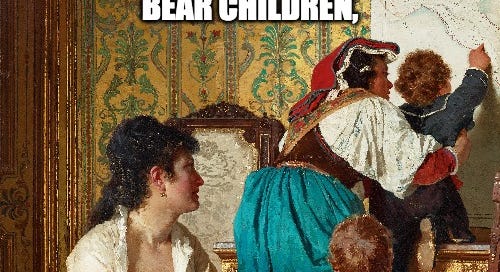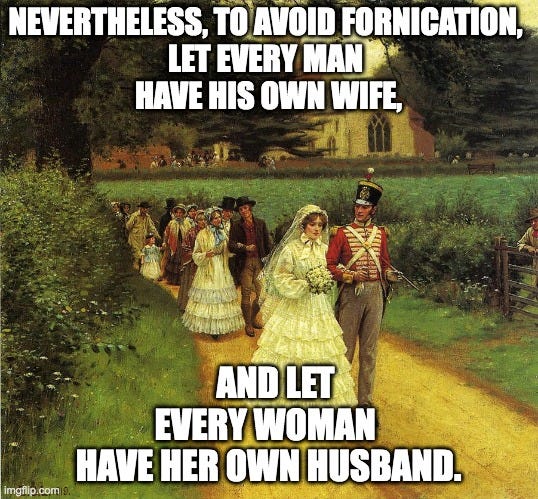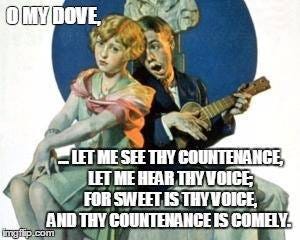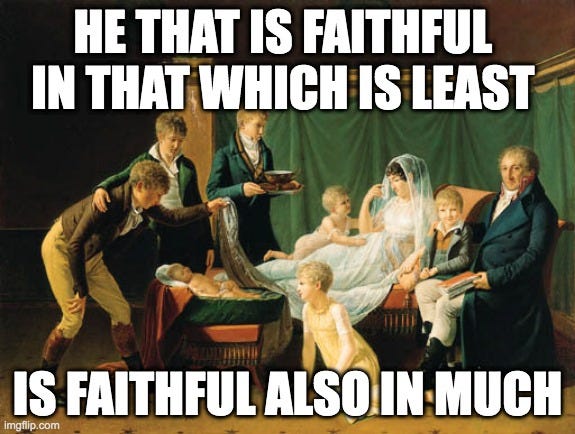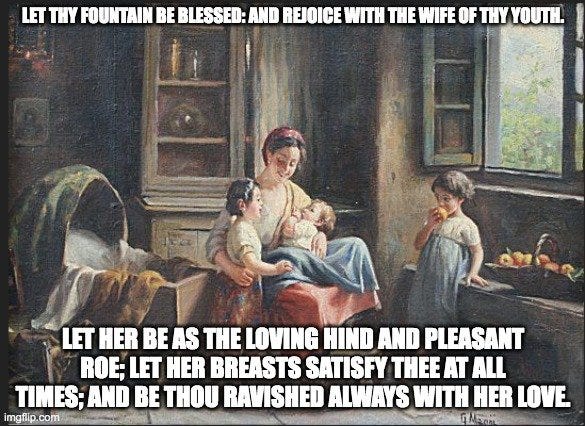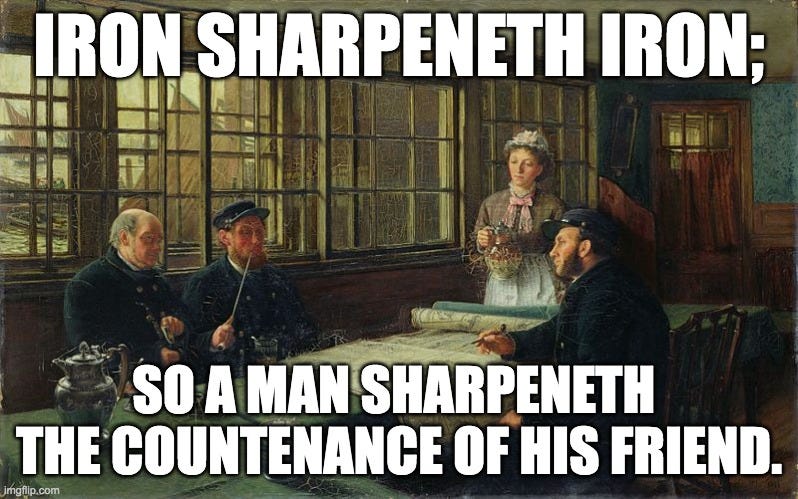Rick Stevens commented on a note thread about my post: “It is the women’s fault.” . He stated, without preamble:
Now that is a misogynist’s POV. Show the data to make your case.
I tried, in vain, to ask for details on what data was required and then decided to write this post. It consists of two sections: the first dealing with the issue of ‘data’, and why that is a red herring, and the second dealing with the word ‘misogyny’.
Data
In my ‘It’s the women’s fault’ post I make the claim not that women bear all the fault for the current marriage and childless crisis, but some of it. I don’t make a claim as to what percent, I merely deny the idea that none of it is their fault.
The counter idea, then, is that it is NOT the women’s fault. Not that men and women share the fault equally, or that men bear most of the fault, but that women bear no fault. This idea is so ludicrous on its face that I don’t believe anyone actually believes it, let alone would need data to back it up. Let us look at what it would mean:
It would have to mean that every single woman on the face of the planet at the least:
-wanted to marry young
-had perfect doctrine as to how they should get married
-did everything she could to make herself fit for marriage
-did everything she could to make that marriage happen, following the perfect doctrine that she knew perfectly
It would mean that when social scientists did studies on the issue of marriage found that no unmarried woman ever said that she could have been married. That one hundred per cent of them said that they rejected the ideas of no-fault divorce, alimony, and child support.
The problem with asking for data is the impossibility of the contrary position. No one actually believes that every woman on the planet holds perfect doctrine on this issue and has acted perfectly throughout their whole life. Thus, I believe the actual issue is one of ‘agency’.
No Fault
Before we get to the issue of agency, I will point out that it could be that some people hold the position that is it not the women’s fault, because there is no fault on either side. That neither men nor women are at fault, because what is going on is actually good. But that was certainly not the view of the woman whose article I was arguing against, who stated, “the crisis of male mental health is an incredibly important subject — especially if you’re raising boys.” Calling something a crisis is a funny way of calling something ‘good’, and I don’t believe that she was doing that.
If anyone wishes to argue that, feel free to make your case in the comments, and I will probably write a post telling you how crazy you are. But this is not that post. This post is built upon the idea that we all agree that we are in a crisis and are trying to apportion blame (and, hopefully, solutions).
Agency and Misogyny
Let’s start our discussion of agency with a couple of definitions. ‘Agency’, as I’m using the word here, means the ability to make your own choices. Not being a robot or a slave. Having both the mental aptitude and the moral fortitude to make a decision and stick to it, not being in thrall to someone else.
And ‘Misogyny’, one of the words that started this discussion, theoretically, means ‘hatred of women’. Most people use it to mean ‘holding positions I don’t like about women’ or even about men, but I’m going to stick to the original definition.
What I am claiming is that the original question seems to say that saying a woman has agency is a form of hatred for women. Saying that a woman should be held responsible for her own actions is saying that you hate women.
If it is true that the actions of women have contributed to the marriage crisis, at least in the most minuscule fashion, which it clearly is (and not just in a minuscule fashion), and yet it is ‘hatred for women’ to say they thus have ‘fault’; then it must be true that you believe there is a disconnect between ‘actions’ and ‘fault’. The women may have taken ‘action’, but they ‘can’t be blamed’ for the action.
Conclusion
I believe that most of this issue is actually an argument about what ‘good’ actually is. What male and female relationships would look like in an ‘ideal’ society, and how that is worked out in each individual relationship. The original article that I was responding to talks a lot about male friendships and the like… and my posts on this subject focus in completely different directions: marriage, taking dominion, and the like. We differ on how to get to the good in large part because we differ on what the good is.
But as for the issue of misogyny, I believe the shoe is on the other foot. I believe that one of the strongest ways of hating anyone is to deny that they have agency. To deny that they are guilty when they do wrong things.
Links
It is the Women’s fault.
And the men’s fault, and the father’s fault, and the pastor’s fault. The problem with the word ‘fault’ is that it can so easily be sidetracked and confused. One can point to the wrong problem, include too many things in the set of problems, or include too few. Or somehow manage to do all of those at once.
Gender Roles

